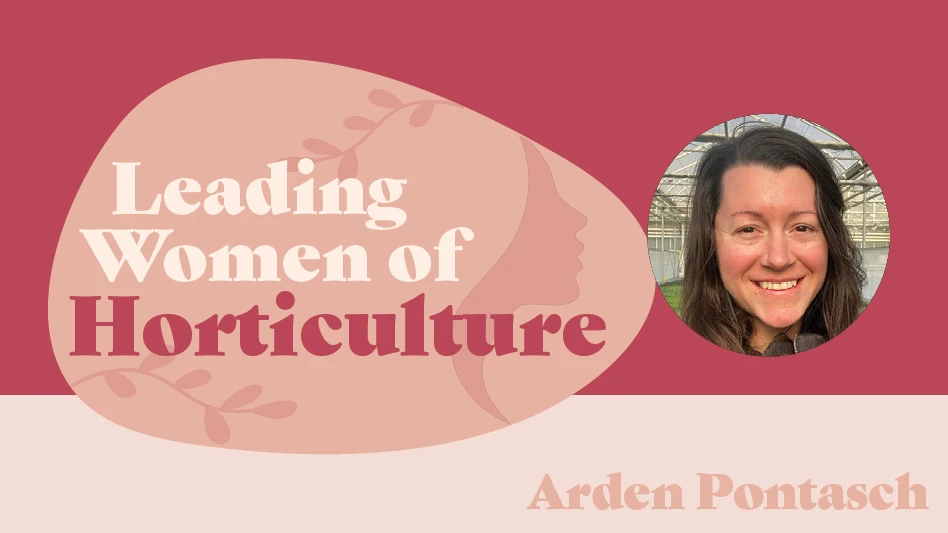
“In the spring a young man's fancy lightly turns to thoughts of love. Spring is the season for love.” — Alfred, Lord Tennyson.
But for most of us, our fancy turns to the welcoming display of spring flowering bulbs after a long and dreary winter. Brightly colored daffodils, tulips and more adorn both public and private landscapes reviving our spirits. There are many people behind the scenes who make that happen, and Becky Heath of Brent and Becky’s Bulbs is one of them.
Becky was born in Richmond, Va., about 60 miles west of Gloucester where she now resides and it’s the home of Brent and Becky’s Bulbs. As the middle child and the only girl, she would follow her dad around, helping with the chores which included working in the vegetable
But her journey to bulbs took a long, convoluted path. Becky started singing just before she was 3 years old and performed for almost 10 years on a weekly children’s program on WRVA radio in Richmond called “Talented Tots” and “Junior Jamboree” during the late 40s and early 50s. She attended Virginia Commonwealth University and graduated with a degree in music and education. Right out of college she began teaching vocal music first at the high school level then to the intermediate level which included orchestra and chorus, challenging her to combine the two types of groups together for performances. She ended up in Gloucester when a private school needed a music teacher and a second-grade teacher.
As a
After they were married, Brent asked Becky to help him with his business, which at the time was called Daffodil Mart. Brent was the third-generation owner and his mother, Katie Heath, was in the office every day. Back then, the only thing they sold
The business was embarking on many changes. Brent was taking more plant photos and was being asked to give talks about daffodils more often, which he enjoyed. The farm, with its 3,000 types of daffodils, was attracting growers from around the world who were looking for something new to grow. Other growers suggested that they could take 200 bulbs of one type and increase them to larger quantities a lot faster than the Heaths could, so Brent and Becky partnered with some outside growers. Around this same time, customers were requesting that the farm grow and sell tulips, not just daffodils.
Brent and Becky toured the fields of their contract growers, making sure the cultivars were labeled correctly and checking for diseases. During those tours, they were inspired by the tulip fields to fulfill their customers’ requests and began growing and selling tulips.
But like true love, the path didn’t run smoothly. The Heaths sold their company to another firm. The terms of the contract associated with the sale were broken, and the pair were forced to start all over again. When asking for advice about a new company name, one of their customers said, “It really doesn’t matter as long as your name is on it, so we know it’s you.” At the time, most of their orders came in by phone or mail. But having the name Heath came across as “
Finding their best roles
When they started they had 10 acres on the home farm but now have an additional 18 acres, 8 of which are for Becky’s “Teaching Garden” and the rest for greenhouses and propagation fields.
“When I married Brent, he was still only growing daffodils and for the first five years, we only sold what we grew on the farm and again, we only grew daffodils. So, we were farmers,” Becky recalls. “The first year we were married, we probably shipped a couple of thousand daffodil bulbs a year. And many were sold one bulb at a time because they were rare. Now we handle millions of different types of bulbs.”
They also deal with contract growers all over the world.
“We developed relationships with growers who only wanted to grow and not have
They’ve since expanded to also grow perennials and tropical plants.

In 2000, they developed a bulb planting machine that can plant up to 30,000 bulbs in an hour. There are two options: one for flat areas and another for hillsides. It helps create a huge splash of color when most things are still not blooming. Their son Jay runs the machine and it has been used at many public gardens in the United States.
Starting out in this industry she met some obstacles, feeling like she was an ornament rather than a contributor. But as time passed and she learned more about the bulbs and the business, she was viewed as a teacher who was sharing information. She also published two books, “Tulips for North American Gardens” and “Daffodils for North American Gardens,” which boosted her credibility. And people began to realize that while Brent was doing the talking, she was the one doing the walking — the woman behind the man.
“Becky excels at both horticulture and business. She travels extensively to promote the bulb business and champion all things horticultural at meetings and conferences across the country,” says C. Colston Burrell, principal at Native Landscape Design and Restoration. “She designed, and Brent maintains, an extensive garden showcasing the myriad hardy and tender plants offered by the nursery as well as durable, heat tolerant herbaceous and woody plants that thrive in the Mid-Atlantic region. All the while she keeps Brent and Becky’s Bulbs running like a well-oiled machine, organizing orders and keeping customers smiling.”
Brent enjoys talking about the bulbs rather than being in the field and dealing with equipment. Becky’s teaching background made her want to provide more information to the customers, which she implemented in their
Sharing the joys of plants and gardening is what drives Becky.
“We know we are not the largest [company] and that has never been what’s important to us. We try to be the best. The best product with the best information and service — at least that is our goal,” Becky says. “We do our best to help new gardeners choose bulbs and plants that will be successful in their area and not choose because of a pretty picture. We hope to share the joys of gardening and help people to play in their gardens.”
Becky is spreading the word in many ways including being the current president of GWA, The Association for Garden Communicators.
She sees the industry evolving. Large companies are buying up smaller companies, and a large portion of the last couple of generations have either decided that growing their own food isn’t important or they are too busy to do so. There are fewer hobby gardeners now from what she’s observed. But the positive news is that she sees “an intense interest from
For more: www.brentandbeckysbulbs.com

Explore the October 2018 Issue
Check out more from this issue and find your next story to read.
Latest from Nursery Management
- Trends: Proven Winners 2025 perennial survey shows strong demand
- Online registration opens for the 2025 Farwest Show
- Sustainabloom launches Wholesale Nickel Program to support floriculture sustainability
- Plant breeding as an art
- Society of American Florists accepting entries for 2025 Marketer of the Year Contest
- American Horticultural Society welcomes five new board members
- Get to know Christopher Brown Jr. of Lancaster Farms
- American Floral Endowment establishes Demaree Family Floriculture Advancement Fund





